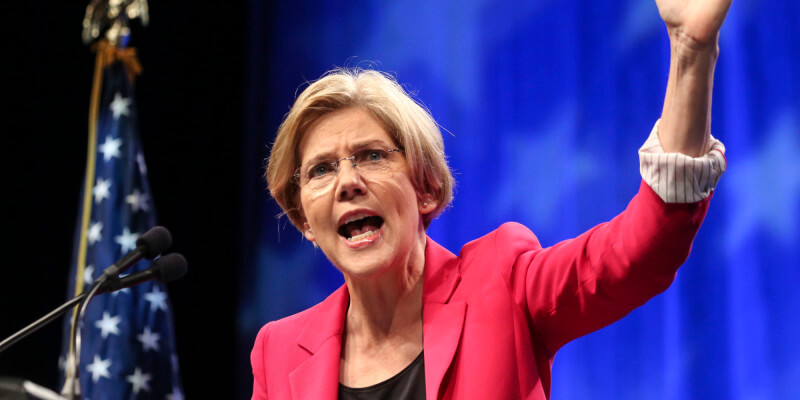By Llewellyn King
I went to Boston this week in pursuit of the real Elizabeth Warren. You see, I don’t think the whole story of Warren comes across on television where she can seem overstated, too passionate about everyday things to be taken seriously.
Like others, I’ve wondered why the progressives are so enamored of her. Suffolk University, mostly known for its authoritative polls, gave her platform as part of an ongoing series of public events in conjunction with The Boston Globe. But whether the dearest hopes of the progressives will be fulfilled, or whether the senior senator from Massachusetts has reached her political apogee is unclear.
What I did find is that Warren has star power. She is a natural at the podium, and revels in it. At least she did at Suffolk, where the cognoscenti came out to roar their affirmation every time she threw them some red meat, which she did often.
Here’s a sampling:
On student loans: “The U.S. government is charging too much interest on student loans. It shouldn’t be making money on the backs of students.”
On the U.S. Senate: “It was rigged and is rigged [by lobbyists and money in politics]. The wind only blows in one direction in Washington … to make sure that the rich have power and remain in power.”
Warren’s questioner, Globe political reporter Joshua Miller, led her through the predictable obstacle course of whether she was angling to be the vice presidential candidate, if Joe Biden runs and becomes the Democratic nominee. She waffled on this question, as one expected, admitting to long talks about policy with Biden and declaring herself prepared to talk policy with anyone. She said the subject of the vice presidency might have come up.
Short answer, in my interpretation: She would join the ticket in a heartbeat. This isn’t only for reasons of ambition — of which she has demonstrated plenty, from her odyssey through law schools, until she found a perch at Harvard as a full professor — but also age.
Warren is 66 years old and although her demeanor and appearance are of a much younger woman, the math is awkward. There are those in the Democratic Party who say she needs a full term in the Senate to get some legislative experience and to fulfill the commitment of her first elected office. But eight years from now, she’ll probably be judged as too old to run for president.
Clearly Warren didn’t fancy the punishment, and probable futility, of a run against Hillary Clinton. But the vice presidency might suit her extraordinarily well, given Biden’s age of 72.
Warren has stage presence; she fills a room. She is funny, notwithstanding that you can be too witty in national politics, as with failed presidential aspirants Mo Udall and Bob Dole. She reminds me of those relentlessly upbeat mothers, who were always on-call to fix things in the children’s books of my youth.
Although Warren comes from a working-class background, years of success at the best schools has left her with the patina of someone from the comfortable classes; someone for whom things work out in life. She counters this by stressing the plight of the middle class, the decline in real wages and her won passion for fast food and beer — light beer, of course.
Warren’s father was janitor in Oklahoma who suffered from heart disease and her mother worked for the Sears catalog. The young Elizabeth did her bit for the family income by waitressing.
However, it’s hard to imagine her at home at a union fish fry. My feeling is that she’d be more comfortable — the life of the party, in fact — at a yacht club.
Progressives yearn for Warren and she speaks to their issues: the lack of Wall Street regulation and federal medical research dollars, and the need for gun control, student loan reform, equal pay for equal work, and government contracting reform.
Less dour than Bernie Sanders, and less extreme, it’s no wonder they long for her to occupy high office; she’s a classic, untrammeled liberal.
All in all, I’d like to go to a party where Warren is the host: the kind where they serve more than light beer. — For InsideSources.com.

